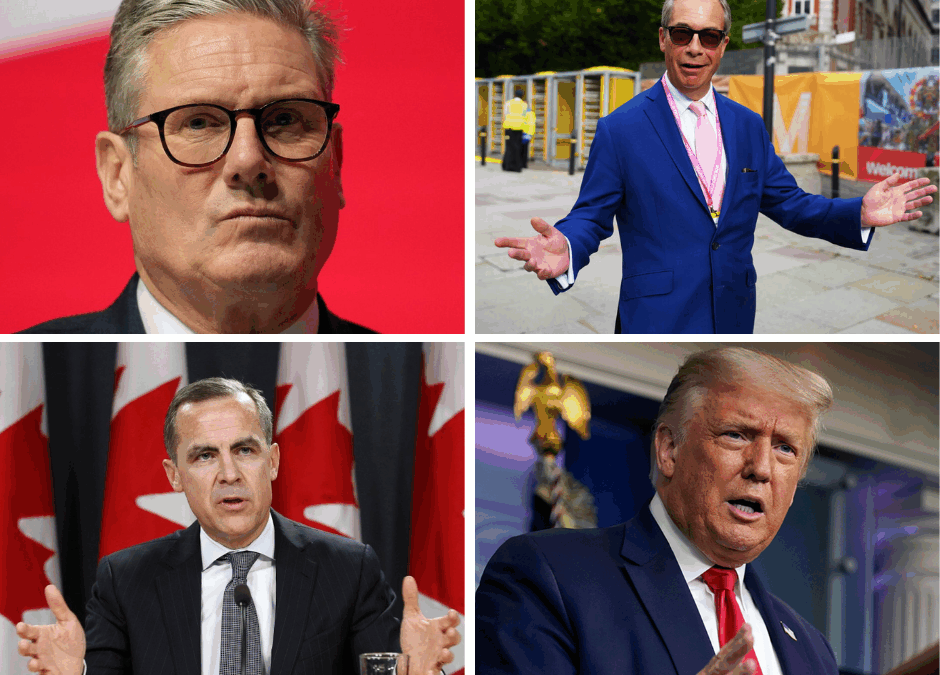Donald Trump is almost unrivalled in his ability to divide opinion. Few people can inspire such allegiance or such animus. In fact, at times animus is too benign a word. For some their confidence in him is unparalleled, almost as great as his confidence in himself, for others he is a super anti-hero, democracy’s greatest threat.
Whichever side of the Trump debate you sit on, most of us have been looking for a political leader who could rescue us from the morass of economic, social, and political woes that we are sinking in.
‘We need better leaders’ is a constant call. If only we had a government lead by someone who is competent, courageous, and charismatic; someone with vision, good judgement, and integrity; a strong, resilient, and principled person, a gifted communicator with excellent people skills. Oh, and someone who inspires, motivates and is one of us. Are you beginning to get my drift? Has such a person ever existed? Well, one has, and perhaps a few others have come within shouting distance, but has governing ever been more challenging or complex? The multiplicity of views, opinions, priorities, identities, and special interest groups, each fuelled and amplified by social media, makes for a permanently contentious public square. To be elected with a governing majority means appealing simultaneously to numerous groups, many of whom have specific and conflicting demands.
Socio economic problems are complex, intertwined, often long established and extremely expensive to solve, usually requiring a strategy which will take years to implement and deliver. As recent events have graphically illustrated, local economies and domestic politics can be subject to global forces which are far beyond the control of locally elected politicians.
I am not suggesting for one minute that we throw up our hands and pray for the Parousia or Rapture, depending on your eschatology. Politics is important and affects almost every area of life, but to serve as a politician is an extremely challenging undertaking, and political leadership is a thankless task. We often have unrealistic expectations of what our politicians can deliver.
While political leaders make important decisions, set the direction for the country, speak on behalf of the nation and, very importantly, set a tone influencing the culture by their speech and behaviour, they are always guided and led by their voting base. In a democracy they are accountable to the electorate; their leadership is provisional. They contribute to the national conversation but do so with an attentive ear, interpreting and reacting to what they hear, since their primary goal is to be elected. To put it bluntly, politicians follow rather than lead.
Civil society is the melting pot in which debates are played out, views evolve, and accepted norms emerge, so it is even more important that Christians express their views publicly and actively participate in our communal life. We may feel that, as Christians, we are unfairly discriminated against, and our views are dismissed as anachronistic. Yet truth is ageless and moral beauty enduring; to advocate for goodness, beauty and truth has never been timelier nor more important. In my experience most Christians underestimate the influence they can have. They may not be the loudest, the most persuasive or the most forceful person in the room but influence grows and the very act of turning up, while it may not immediately change the outcome, will change the tone of the debate. In my experience integrity, thoughtfulness and kindness all bestow authority on a person, especially during in person meetings. Wherever we are, in an office, a classroom, a building site or a hospital ward, the Holy Spirit is present and working through us. Change often comes from the bottom up.
So, if we want to see our politicians setting a new direction or behaving differently, we can influence them to do so. Contributing to the public conversation influences the views and behaviours of others, and while change may be slow and at times imperceptible, light is stronger than darkness. Being actively involved in society changes that society.
Tom Holland in his masterpiece Dominion, convincingly argues that the foundations of western civilisation are irredeemably Christian, and Christian thought has shaped every sphere of life including education, science, business, healthcare, politics, and human rights. That work is far from complete and the opportunities to contribute are multiple. So, let us cut our politicians a bit of slack and accept our own responsibility. Society is changing and the outcomes are yet to be determined. We should take courage, speak up and recognise the essential contribution we each must make, or to quote the Apostle Paul ‘Stand firm in the faith. Be courageous. Be strong. And do everything with love.’
John Kyle was a GP in East Belfast and a Councillor on Belfast City Council. He is married to Helen, is a member of Christian Fellowship Church, and is a Contemporary Christianity Board member.
Please note that the statements and views expressed in this article of those of the author and do not necessarily represent those of Contemporary Christianity.


John,
Thanks for your challenging yet encouraging thoughts. We each can influence the future through our Christian witness.
Yes. Showing up!
What would Jesus do? Exactly that…
be present,
present with…
not against…
the poor, marginalised, outsiders, foreigners… those with less power…
Grateful for courageous people who have been willing to stand… with …
This is the kind of message I wud love to hear preached from the pulpit every Sunday. It was inspiring ,encouraging and strengthening for every Christian .Thankyou John.